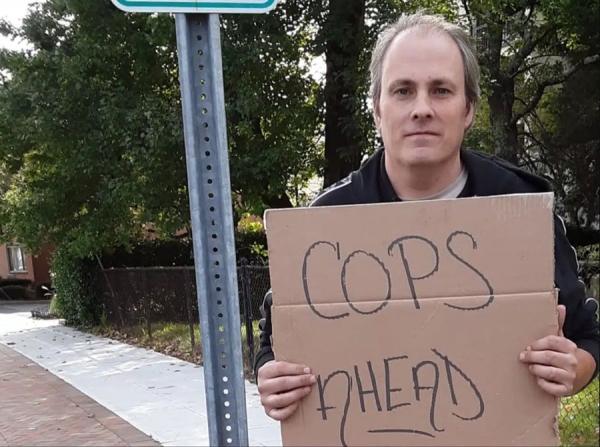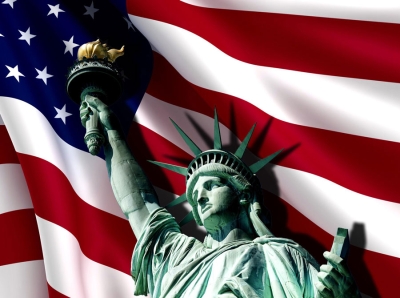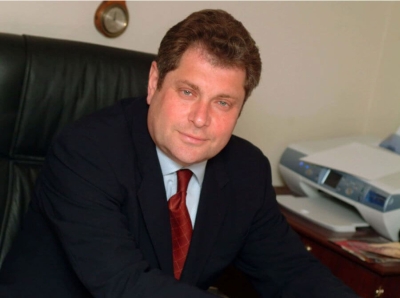Connecticut man arrested for placard warning drivers

Connecticut resident Michael Friend decided to counter the "special police operation": Mr. Friend, with a "cops ahead" sign, stood one intersection ahead of an ambush by police who were catching drivers using cell phones while driving. Seeing Friend warning drivers, the police officer approached, took the cardboard with the warning and demanded that Friend leave so as not to interfere with the investigation. Friend went one intersection further, made a new warning sign and continued his actions. It all ended with Friend's arrest for interfering with the police. However, later the prosecutor decided not to bring charges, since the actions of the detainee, in fact, were aimed at achieving legal goals: drivers, having learned that the police were ahead, stopped using mobile phones, and this is what the police wanted. By the way, the court beautifully calls the prosecutor’s refusal of charges in Latin nolle prosequi.
Mr. Friend, after spending several hours in jail, did not forget about his arrest and sued the police officer and the city. I will not go into detail about his position on the violation of the Fourth and Fourteenth Amendments, which are associated with the seizure of the phone and the determination of bail. I will focus on the police violation of the First Amendment: the right to free speech. As the plaintiff pointed out, having seen the way the police were fighting violators, he decided to protest against this, since he did not consider this method correct, and peaceful protest is protected by law. The court of first instance did not agree with the plaintiff, pointing out that his rights were not violated: the court refused to recognize the words on the cardboard as protected speech, and the behavior of the plaintiff himself as expressive (that is, one that expresses some kind of message). The court also pointed out that in order to receive First Amendment protection, speech must be of public importance, and the words on the cardboard are not. Moreover, the defendants, as government officials, acted in the public interest because there was a benefit to fighting phone use while driving, and Mr. Friend was preventing it. If the plaintiff wanted to express his disagreement with the actions of the police, he could, for example, write a complaint.
However, the appeals court disagreed and overturned the First Amendment decision. The court held that there was no requirement for speech to be of "public importance" for First Amendment protection (the appeals court said the first instance had improperly created a "First Amendment-free zone"): no precedent supported such a conclusion. Other exceptions to First Amendment protections such as insult or incitement to violence also cannot apply to Mr. Friend's conduct. Although the court of first instance indicated that, in objecting to the actions of the police, the plaintiff did not indicate what exactly the illegality of the actions of law enforcement officers was, the appellate court found that a citizen does not have to prove illegality; it is enough to declare disagreement for any reasons. Potentially, First Amendment protections might not apply to the plaintiff if his words or expressive behavior were part of the commission of a crime. However, Friend did not commit any crime: the court agreed with the prosecutor's decision not to bring charges of obstruction of the investigation, since for such a charge the plaintiff must achieve the opposite result than the police, and in this case the goals of both coincided and there was no opposition or interference.
Author: Igor Slabykh



